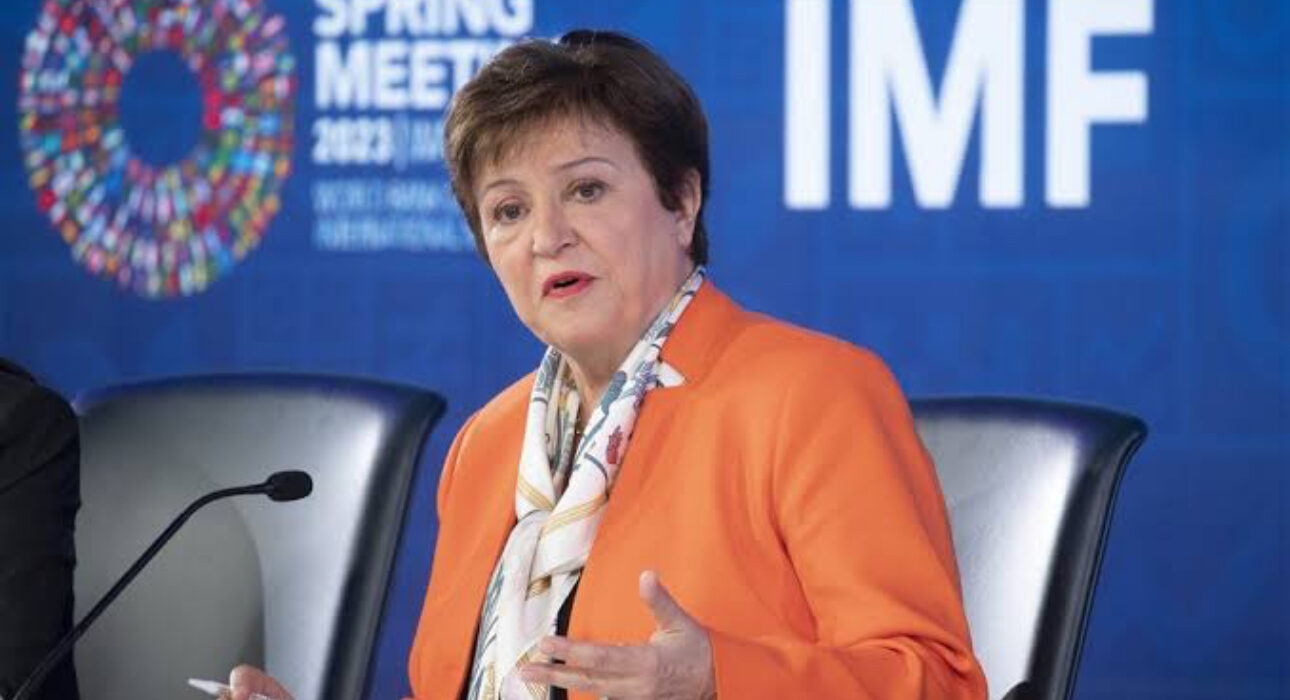Deepen Intra-Regional Trade to Withstand Global Economic Shocks, IMF Urges African Leaders

In light of rising global economic uncertainties, the International Monetary Fund (IMF) has urged African nations to enhance intra-regional trade and integration as a strategic buffer against future economic shocks.
Speaking during the 2025 IMF and World Bank Spring Meetings in Washington, IMF Managing Director Kristalina Georgieva emphasized the need for African leaders to reduce their economies’ exposure to global volatility by strengthening regional cooperation and fully implementing the African Continental Free Trade Area (AfCFTA).
Georgieva noted that several African countries — particularly those reliant on oil exports or heavily dependent on imports — remain vulnerable to global disruptions, including fluctuating commodity prices, trade restrictions, and geopolitical tensions.
“For oil-exporting countries like Nigeria, declining oil prices put significant pressure on government revenues. Conversely, oil-importing countries may benefit from lower costs — but overall, the message is clear: stronger regional integration is vital,” she said.
The IMF projects global economic growth will slow to 2.8% in 2025, with only a slight improvement to 3% in 2026. In Africa, the outlook is similarly subdued, with revised growth projections of 3.9% for 2025. Georgieva attributed the weaker forecasts to ongoing global trade tensions, inflationary pressures, and rising interest rates, all of which could hamper investment and development across the continent.
The IMF chief highlighted the African Continental Free Trade Area (AfCFTA) as a transformative opportunity to drive sustainable development.
The agreement, which aims to create a single market of over 1.4 billion people, is expected to boost trade by reducing tariffs, improving logistics, and eliminating non-tariff barriers.
“The AfCFTA is Africa’s ticket to stronger, more self-reliant growth. Deepening trade within the continent can reduce dependency on global markets and insulate economies from external shocks,” Georgieva stressed.
Beyond trade, the IMF also urged African governments to adopt policies that reinforce macroeconomic stability.
This includes:
• Expanding tax bases through technology and better enforcement
• Investing in infrastructure to support commerce and connectivity
• Building financial buffers to manage crises
• Enhancing debt management to maintain fiscal discipline
The IMF reaffirmed its commitment to supporting Africa through financial assistance, technical training, and policy advice. Georgieva reiterated that the IMF would continue working closely with African nations to help them build resilient economies capable of withstanding future shocks.
“Now is the time for bold action,” she said. “Africa has immense potential — but realizing it requires unity, investment, and a shared commitment to regional integration.”








